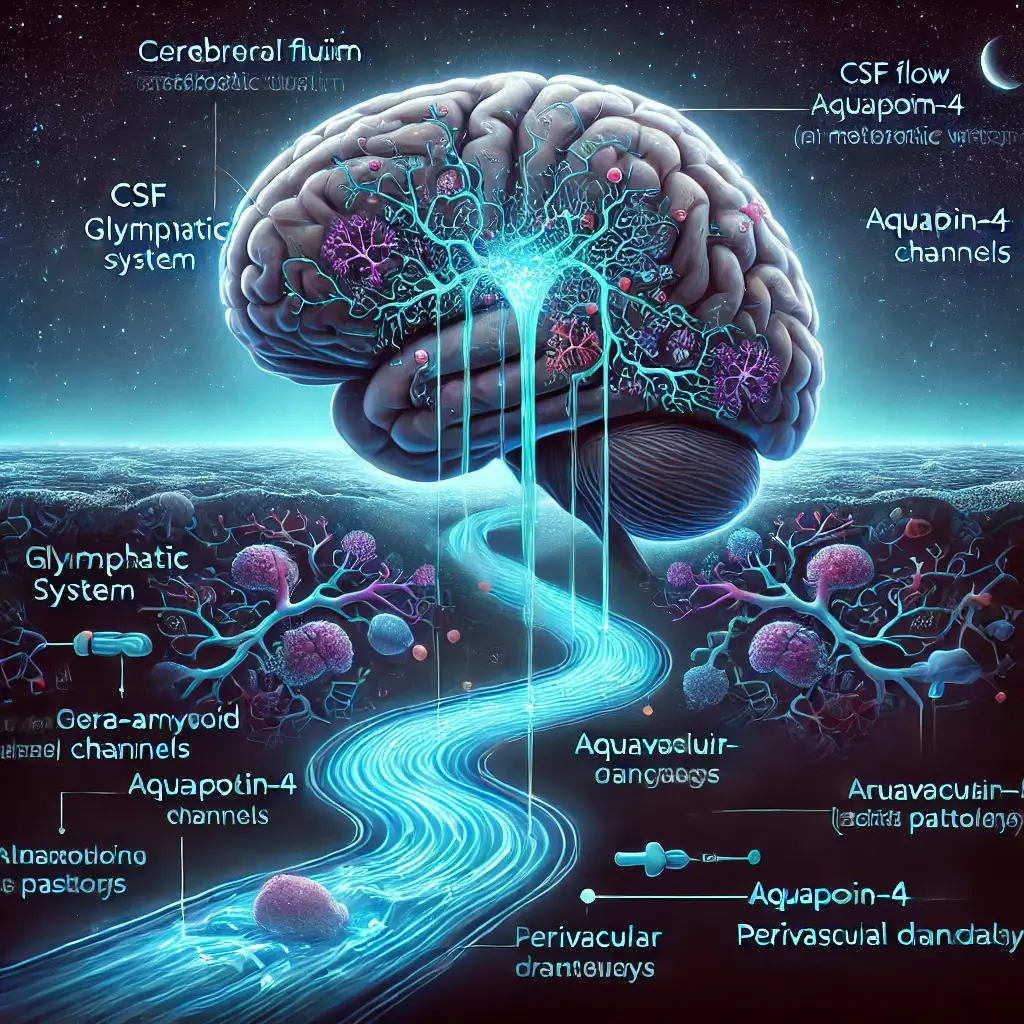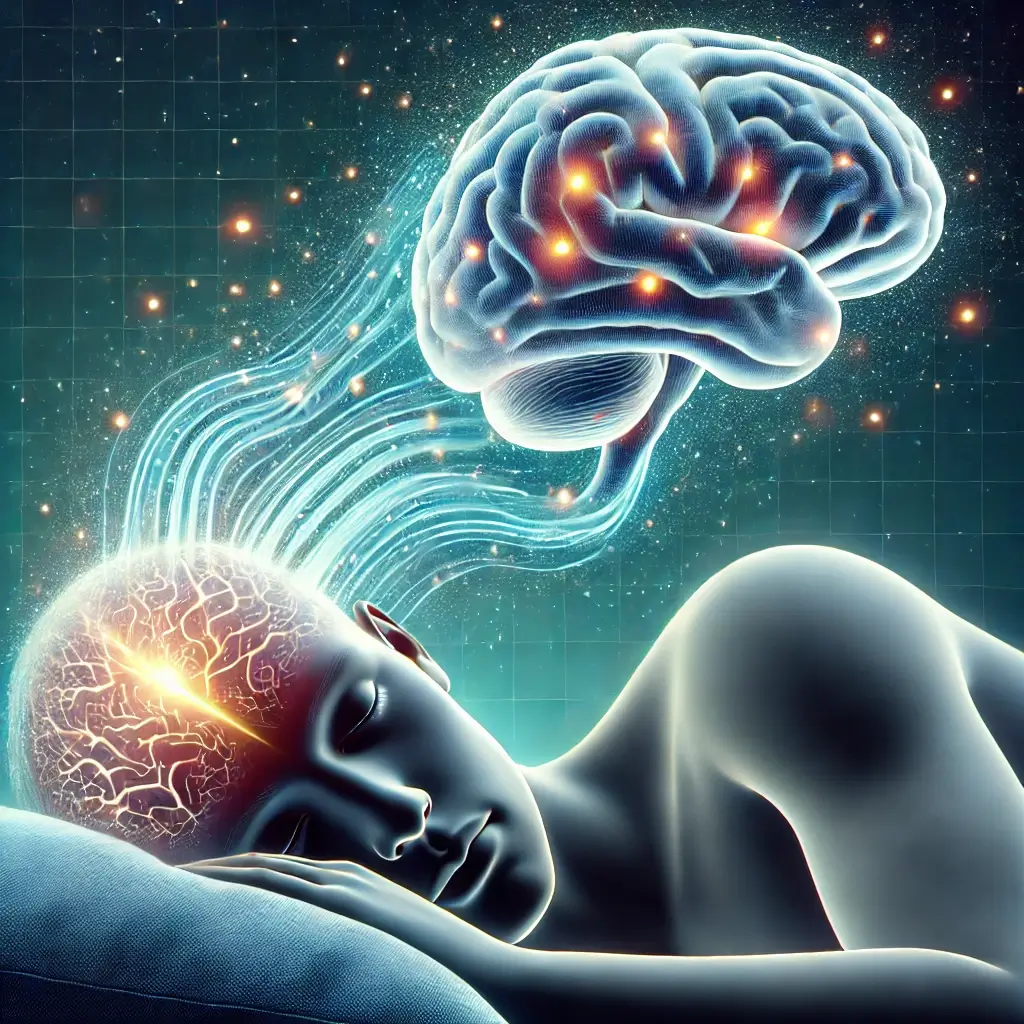Breakthrough Research: Your Brain’s Natural Cleaning System Only Works During Sleep
Introduction to Sleep’s Role in Brain Health
While sleep often feels like a pause from daily life, it is a time of profound activity within the brain. During deep sleep, the brain undergoes essential maintenance processes that support cognitive health, emotional regulation, and physical recovery. One of the most remarkable discoveries in neuroscience over the past decade is the glymphatic system—a specialized waste removal mechanism active predominantly during deep sleep. This system cleanses the brain of toxic byproducts and plays a crucial role in preventing neurodegenerative diseases.
Understanding Cerebrospinal Fluid and Sleep Quality
The glymphatic system’s function centers on the circulation of cerebrospinal fluid (CSF), which flushes out harmful substances, including beta-amyloid and tau proteins, known contributors to conditions like Alzheimer’s disease. Research highlights the system’s dependency on high-quality sleep, particularly deep, non-rapid eye movement (NREM) sleep. Disruptions to sleep, whether through lifestyle factors or medical conditions, can impair glymphatic function, increasing the risk of cognitive decline and other neurological disorders (Xie et al., 2013).
Overview of Article’s Purpose
This article explores the glymphatic system’s role in maintaining brain health, the consequences of impaired deep sleep, and practical strategies to optimize this vital process. By integrating findings from recent medical research, we aim to underscore the importance of deep sleep as a cornerstone of cognitive resilience and overall well-being.
The Glymphatic System’s Core Components
The glymphatic system operates as a pseudo-lymphatic network exclusive to the central nervous system. Its discovery in 2013 by Maiken Nedergaard and colleagues marked a pivotal moment in neuroscience, revealing how the brain manages waste removal without traditional lymphatic vessels. The system’s key components include:
Cerebrospinal Fluid as a Cleaning Agent: CSF is the medium through which metabolic waste is transported out of the brain. Its flow intensifies during deep sleep, efficiently clearing harmful byproducts.
Aquaporin-4 Channels in Glial Cells: These water channels are essential for directing CSF through brain tissue. Glial cells, particularly astrocytes, form pathways that guide the movement of CSF, ensuring thorough waste removal.
Perivascular Drainage Pathways: After collecting waste, CSF drains along perivascular pathways, eventually entering the body’s lymphatic system for final disposal.
Sleep’s Impact on Glymphatic Function
Research has consistently demonstrated that the glymphatic system is most active during deep sleep. A pivotal study published in Science Translational Medicine showed that CSF flow through the glymphatic pathways was 60% more effective during sleep compared to wakefulness (Xie et al., 2013). This enhanced activity underscores the importance of maintaining healthy sleep cycles for optimal brain detoxification.
Connection to Neurodegenerative Conditions
One of the glymphatic system’s critical roles is clearing beta-amyloid and tau proteins, which accumulate in the brain as part of normal metabolism. These substances are strongly associated with Alzheimer’s disease when they aggregate into plaques and tangles. Impaired glymphatic function, often resulting from chronic sleep deprivation or fragmented sleep, reduces the clearance of these toxins, increasing the likelihood of cognitive decline.
Research Findings on Sleep Deprivation
A 2017 study in Nature Neuroscience expanded on this link, demonstrating that sleep deprivation significantly decreased the clearance efficiency of beta-amyloid in both animal and human models. Furthermore, poor sleep hygiene is associated with other neurodegenerative conditions, such as Parkinson’s disease, where alpha-synuclein aggregates similarly accumulate (Nedergaard et al., 2017).
Optimizing Sleep for Better Brain Health
Improving glymphatic function starts with optimizing sleep quality. Practical strategies include:
Maintain a Consistent Sleep Routine: Aligning with the body’s natural circadian rhythm enhances the likelihood of achieving deep sleep.
Create a Relaxing Pre-Bedtime Routine: Engage in activities like reading, stretching, or meditating to prepare your body and mind for sleep.
Limit Blue Light Exposure: Reduce screen time in the evening or use blue light filters to avoid disrupting melatonin production.
Focus on Diet and Sleep Hygiene: Stay hydrated throughout the day, but avoid heavy meals and excessive liquids close to bedtime.
Consider Sleep Supplements with Professional Guidance: If you struggle with sleep, consult a healthcare provider about melatonin or other sleep aids that may support your needs.
Final Thoughts on Sleep’s Importance
The glymphatic system has transformed our understanding of the relationship between sleep and brain health. It serves as a nightly cleaning crew, clearing waste and protecting against conditions like Alzheimer’s disease. However, this system relies on deep sleep to function effectively, making sleep hygiene a crucial aspect of maintaining cognitive health.
Closing Summary
By adopting habits that promote restorative sleep and natural brain detoxification, individuals can support their brain’s natural detoxification process, reduce the risk of neurological disorders, and enhance overall mental clarity and well-being. As research continues to uncover the nuances of the glymphatic system, it becomes increasingly clear that sleep is not a luxury but a biological necessity for lifelong brain health.
References
Xie, L., Kang, H., Xu, Y., Chen, M. J., Liao, Y., Ouyang, Y., … & Nedergaard, M. (2013). Sleep drives metabolite clearance from the brain. Science Translational Medicine, 342(6156), 373-377.
Nedergaard, M., Iliff, J. J., Takano, T., Verkman, A. S., & Rasmussen, A. (2013). Paravascular spaces: The routes for cerebrospinal fluid drainage in the nervous system. Science Translational Medicine, 5(198), 198ra85.
Holth, J. K., Fritschi, S. K., Wang, C., Pedersen, N. P., Cirrito, J. R., Mahan, T. E., … & Holtzman, D. M. (2017). The sleep-wake cycle regulates brain interstitial fluid tau in mice and CSF tau in humans. Nature Neuroscience, 20(7), 903-910.













